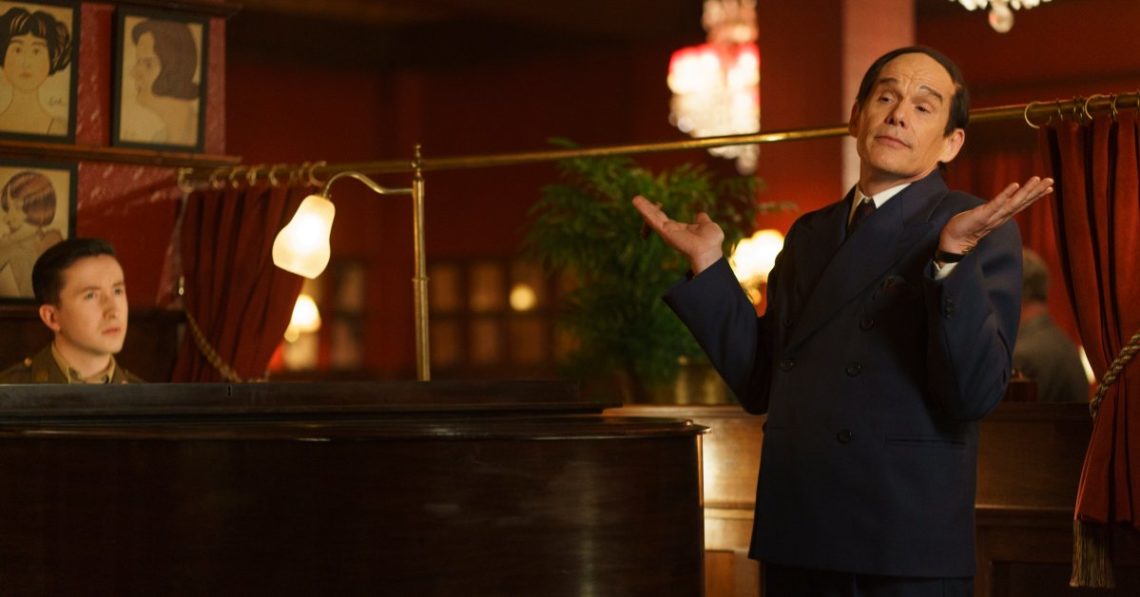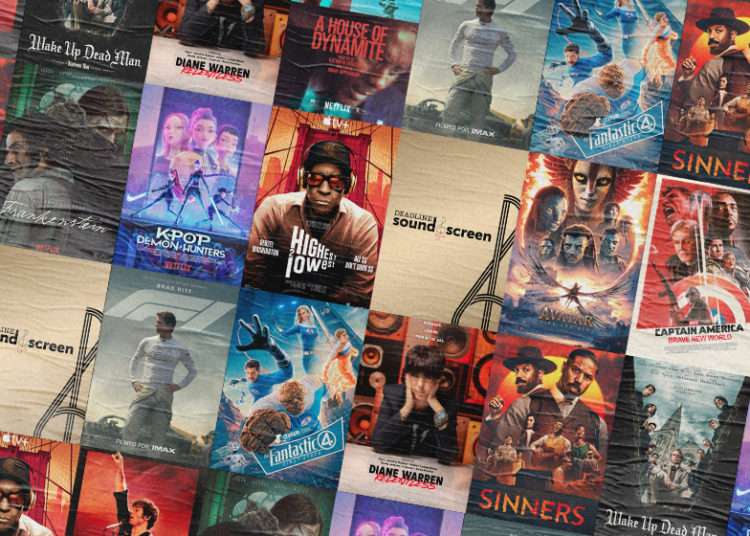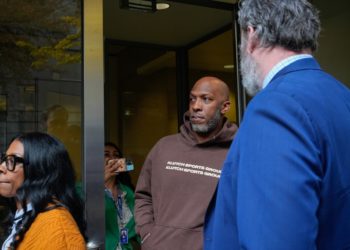Who doesn’t love Oklahoma!, the 1943 Rodgers and Hammerstein extravaganza that kicked off what’s often called the golden age of musical theater? If you don’t find your toes a-tapping to jaunty little numbers about courting your sweetie in a humble, fringe-draped carriage or using pachyderm metrics to determine the height of certain cornstalks, you just might be dead. That, or you’re the spiritual kin of Lorenz Hart, Richard Rodgers’ first—and, to some of us, finest—writing partner. Hart, who died in 1943 at age 48, was the lyricist behind standards like “My Funny Valentine,” “I Didn’t Know What Time It Was,” and “Bewitched, Bothered, and Bewildered,” songs dappled with every color of elation or heartbreak, even as they glittered with self-deprecating humor. He was the thinking, feeling person’s lyricist, alive to everything life could dish out; and when it came to romantic misery, he took the punches for us so they wouldn’t hurt so much.
Hart didn’t have a particularly happy life: he struggled with depression and alcoholism, not to mention unrequited love; he was most definitely gay, though like many gay men of his era, he conducted himself with discretion. But despite carrying all that sadness, he left us an abundant legacy of joy, and it’s that poignant balance of darkness and light that director Richard Linklater captures so beautifully in Blue Moon, set in the last months of Hart’s life.
Ethan Hawke plays Hart; the setting, for the most part, is Sardi’s, the Broadway hangout where directors and actors would gather, post-performance on opening night, to wait for the reviews to roll in. Hart isn’t supposed to be drinking; he’s been trying to get off the sauce. But bars are convivial places, and right now Hart needs that connection. He greets the bartender, Bobby Cannavale’s Eddie, like a long-lost brother. The two trade quips from Casablanca. He wheedles one drink from his friend—followed by another, and another. He tells Eddie about a college girl he’s madly in love with; her name is Elizabeth, and he’s waiting for her to join him at the bar. Because later that evening—it’s March 31, 1943—Hart’s former songwriting partner Richard Rodgers (Andrew Scott) will show up with his new librettist and lyricist, Oscar Hammerstein (Simon Delaney). Their new musical, Oklahoma!, has just opened. From the audience, Hart watched as much of the show as he could before decamping to the bar. As he describes the debacle he’s just witnessed, his body language is one giant eye roll. “Oklahoma, with an exclamation point, no less,” he says drily.
The backstory is that Hart’s drinking had become such a problem that Rodgers cut him loose, realizing he couldn’t work with him. They’d had a string of hit shows over the years: Babes in Arms, Pal Joey, A Connecticut Yankee. But not even Hart’s genius with a lyric—his knack for spinning out tricky rhymes in lines like “beans couldn’t get no keener re-/ception in a beanery”—could make Rodgers reconsider. The show Rodgers would write with Hammerstein would run for five years and be revived repeatedly through the decades. Hart would be dead—from pneumonia, though his drinking had certainly hastened his demise—by November, just eight months after the triumph of that opening night, a triumph his former writing partner had achieved with someone else.
But in Blue Moon, Hart is very much alive. As he waits with dread for the Oklahoma! gang to arrive at Sardi’s, he complains some more about the quality of the show (“It’s fraudulent on every possible level!”), even as he acknowledges that it’s a surefire hit. There’s both envy and derision in his voice: he wants his friend to succeed, but not without him. Still, he’s garrulous and exuberant, the life of the party—it’s a role that’s deep in his bones. He strikes up a conversation with a fellow solo drinker at a nearby table, who turns out to be E.B. White (Patrick Kennedy), and gives him a small gift, a flash of inspiration that will become White’s children’s novel Stuart Little. He complains that everyone loves his biggest hit song, “Blue Moon,” to the point that they can’t appreciate any of his others. Elizabeth arrives, sweeping into the joint, breathlessly, on a gust of girlish ambition. She’s played by Margaret Qualley, with a tousle of blond hair. She regales Hart with the juicy details of a fizzled sexual encounter—he wants to hear every word—but what she really wants is to be introduced to Rodgers.
The man of the hour arrives, a cloud of elegance in a trim black tuxedo, with the deferential and eminently likable Hammerstein close behind. Hart races toward them and gushes about the show, somehow sounding as if he means it. Rodgers accepts Hart’s compliments gratefully—you can tell this partnership meant the world to him, too—and offers Hart a small consolation prize: Would he like to write some new songs for A Connecticut Yankee? The dynamic of their relationship—Rodgers’ organized, businesslike demeanor bumping up against Hart’s brilliantly entropic energy—plays out in a miniature drama of its own, one in which Rodgers, so clearly empathetic, may be suffering just as much as his former writing partner is, and perhaps even more. Scott plays Rodgers as a man who’s riding high even as he realizes he has lost something precious and irreplaceable. He looks at Hart with the kind of tender regret usually reserved for ex-lovers; there are times when work partners—particularly when they’re united in creating something beautiful and grand, as these two were at their peak—are nearly that close.
Blue Moon is both a modest movie and a dazzling, generous work. (The script is by Robert Kaplow, whose 2003 novel, Me and Orson Welles, was also adapted by Linklater.) It’s about unhappiness as creative fuel, about friends and creative partners torn apart by demon drink, about the ways in which two human beings can live forever within the miracle of a song. It’s the kind of film a director and actor make when they’re completely simpatico, as Hawke and Linklater are, having sustained a working partnership since 1995’s Before Sunrise—you can’t make a movie as simultaneously joyous and melancholy as this one is without being fully in tune with each other.
Hawke is sensational here. His Lorenz Hart is a lost soul of New York, an artist who couldn’t have flourished—or fallen—anywhere else. With his wily combover, fooling no one (least of all himself), he cuts a figure far short of dashing. His neuroses flitter around him like fireflies. But you can’t take your eyes off him: he’s so watchful, so wistful, and also, weirdly, so thrilled to be alive. It’s as if he’s been pickled in his own disappointments for so long that he can’t imagine life without them—and so he’s going to turn them into wisecracks, into velvety laments, into lyrics like “Don’t change a hair for me/Not if you care for me.” Hawke catches all those elusive qualities in his butterfly net. You don’t have to know anything about this extraordinary artist to enjoy Blue Moon, to tune into its glad-to-be-unhappy spirit. But if you already know the songs, and a little something about the men who wrote them, Blue Moon just may be the movie you’ve been waiting for. Lorenz Hart people, rejoice. With an exclamation mark.
The post Ethan Hawke Captures the Spirit of Brilliant Lyricist Lorenz Hart in Blue Moon appeared first on TIME.




